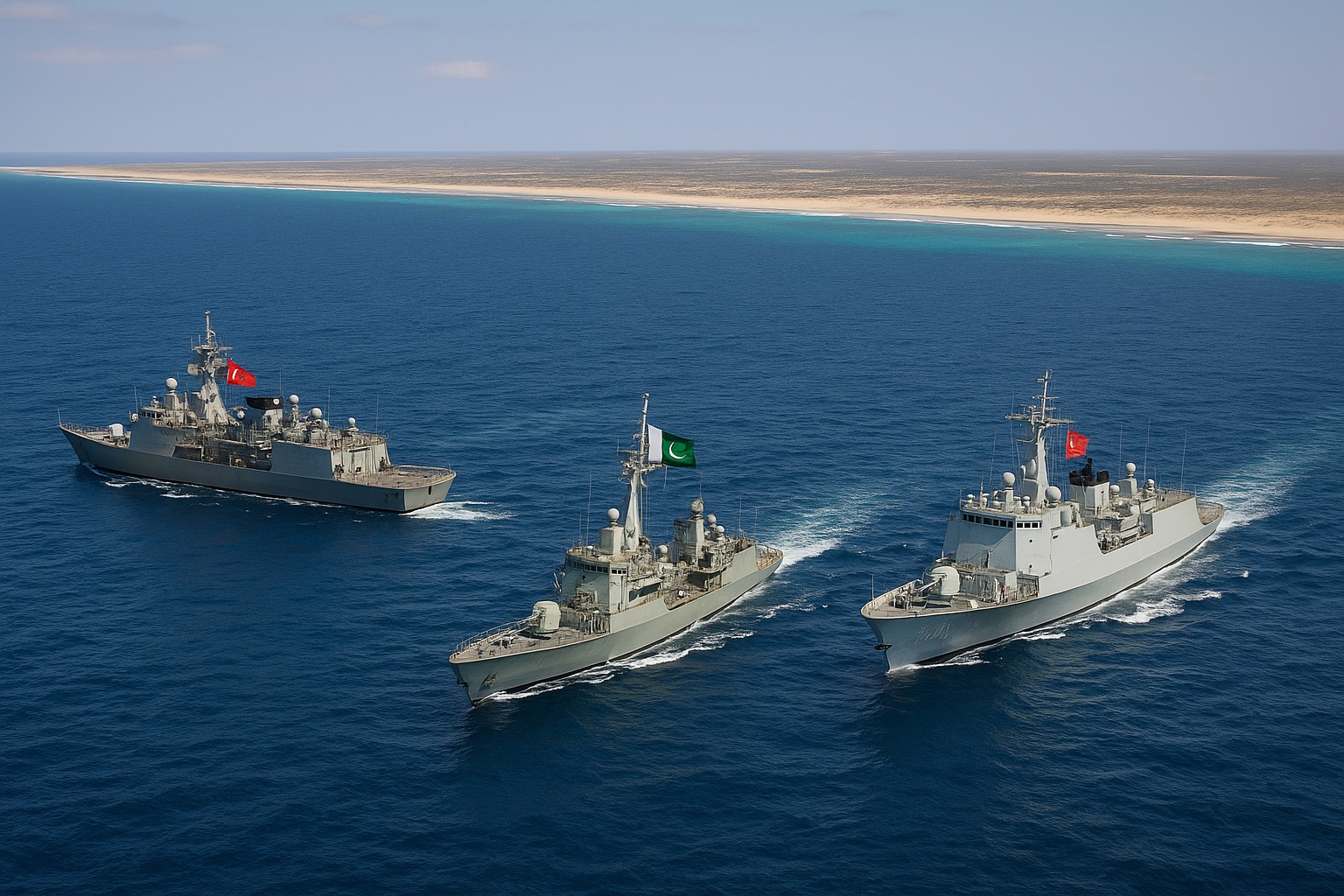Somalia’s coastline is fast becoming the hinge on which bigger powers test ideas about influence in the western Indian Ocean. Taken together—Turkey’s entrenched training presence and new maritime guarantees, Pakistan’s fresh military-training pact, and China’s money and hard facilities next door—the pattern looks less like Somali empowerment and more like a trilateral gravity well pulling Mogadishu into others’ strategies. That perception matters for Western shippers, Indian strategists, and African policymakers trying to keep the Horn open, lawful, and stable.
Turkey anchors the military pillar. Since 2017, Ankara has run its largest overseas base and training mission in Mogadishu, producing Somali infantry units and officers and giving Turkey unusual day-to-day access to the country’s force development. In February 2024, the relationship widened: a defence-and-economic framework that includes Turkish support to protect Somalia’s waters and, soon after, an oil and gas cooperation deal to explore Somali acreage offshore and onshore—maritime muscle paired with commercial stakes. Reports in 2024–25 also described a planned Turkish spaceport on Somalia’s coast, framed as an equatorial launch site that would double as a long-range missile test area—another reason regional capitals are watching closely.
Pakistan supplies manpower and know-how. On August 28, 2025, Somalia’s cabinet approved a five-year defence MoU with Islamabad covering troop education, naval technical assistance, maintenance, and joint oversight through a defence committee. Pakistan’s navy has periodically commanded the multinational counter-piracy task force CTF-151, so the training on boarding, convoy escort, and information sharing is directly relevant to Somali waters. But critics in Nairobi and Addis warn that, unless ring-fenced inside multinational arrangements and transparent schedules, a bilateral surge of trainers and port calls will be read as bloc politics—not state-building.
China provides the financial keel and a nearby hard point. Its first overseas military base sits in Djibouti, minutes from Somali lanes, while Chinese finance underpins railways, ports, and logistics across the Horn and the wider East African seaboard. That combination—steel, piers, and sovereign credit—lets Beijing shape corridors and standards even when the project site is outside Somalia proper. For Indian Ocean watchers, what matters is not a signed “trilateral alliance,” which no one has announced, but the functional convergence: Turkish training and maritime guarantees inside Somalia, Pakistani uniformed expertise to scale them, and Chinese capital and facilities that organise the wider theatre.
For Western and Indian audiences, the risk is a slow shift in norms. If security assistance, offshore exploration, and port calls advance without regional guardrails, the Gulf of Aden becomes a venue for message-sending between rival camps—raising insurance premiums, complicating anti-piracy patrols, and crowding sea room around undersea cables. African governments have already floated a rules-first counterweight: Kenya’s push, via IGAD and in consultation with Djibouti, to codify how landlocked states access ports and how basing, leases, and maritime training are notified and reviewed. That approach converts nervous headlines into procedures everyone can read and obey.
Somalia has both power and risk in this situation. It can take control by requiring all outside help—whether from Turkey, Pakistan, Europe, or others—to go through official channels, with clear rules and time limits focused on fighting piracy and guarding the coast. If Somalia does this, it will be seen as a responsible manager of an important sea route. If not, it may look like it’s being used by other countries for their own agendas. This won’t be decided by official statements, but by what actually happens at sea: whose ships are there, whose routes are reported, which patrols are done together, and how fast the region responds to changes.

